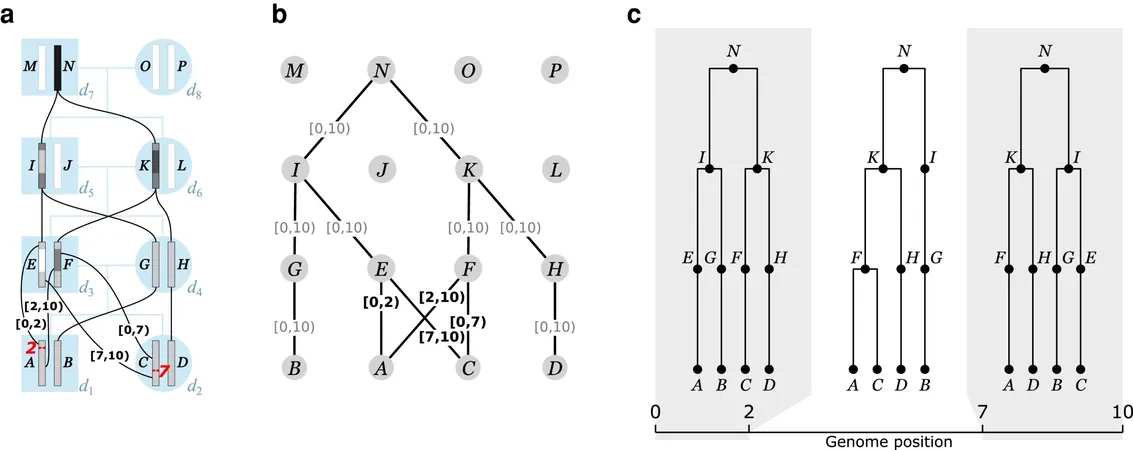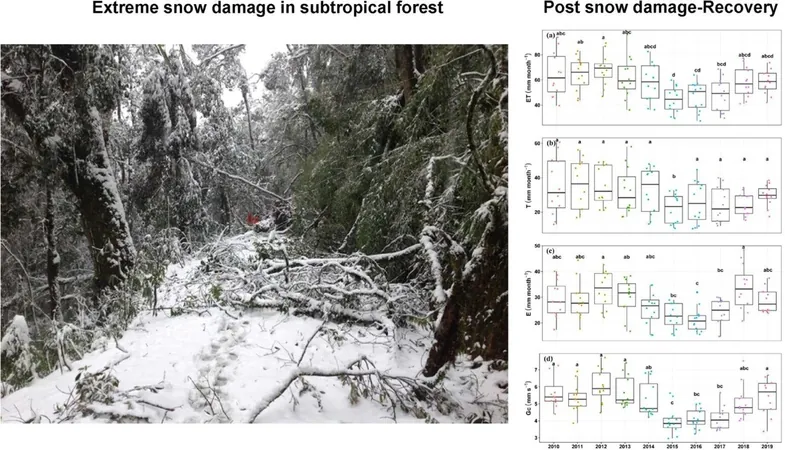
Breakthrough Method Unlocks Secrets of Your DNA: Discover Your Ancestry Like Never Before!
2024-09-16
Groundbreaking Advances by University of Glasgow Researchers
Researchers at the University of Glasgow have made a groundbreaking advancement in understanding genetic ancestry through a novel method that maps the intricate relationships between DNA sequences and their origins. This innovative approach has far-reaching implications, from tracking the evolution of viruses like SARS-CoV-2 to enhancing personalized medicine, which considers individual genetic profiles for disease prevention and treatment.
Published Research in *GENETICS*
Published in the prestigious journal *GENETICS* as the featured paper in its September 2024 edition, this research highlights the growing significance of genetics in our daily lives. With new revelations in genetics making headlines every week, a vast amount of DNA data is being generated for medical research and ancestry studies.
Constructing Genetic Family Trees
The researchers reveal that by tracing small sections of DNA backwards through generations – starting with a person's parents, then their grandparents, and so forth – they can construct genetic 'family trees.' This interconnected web of inheritable traits is referred to as the Ancestral Recombination Graph (ARG). Previous studies by the Big Data Institute have demonstrated that these networks not only illuminate our genomic history but also streamline DNA data compression and accelerate genetic analysis.
Revolutionary Encoding Model
Dr. Yan Wong, the lead author and an evolutionary geneticist at the Big Data Institute, emphasized the revolutionary encoding model introduced in the study. "Our method allows us to represent genetic genealogies as fragments of ancestral DNA, creating a clearer view of how today's genetic sequences can be traced back through ancestral genomes," he explained.
Facilitating Global Collaboration
Co-author Dr. Anastasia Ignatieva, a statistician at the University of Glasgow, added that reconstructing genealogical data from sequencing results is a dynamic area within population genetics. “Our universal approach for encoding genealogies as graphs facilitates easier collaboration and comparison among scientists across the globe,” she stated.
Flexible Analysis of Genetic Data
The researchers’ methodology captures genetic ancestry with varying levels of detail, enabling them to depict relationships among DNA sequences without necessitating exact dates for genetic splits and mergers. This flexibility accommodates a diverse range of existing methods used by scientists to reconstruct genetic histories.
Accessible Advanced Technology
A major highlight of this study is its capability to analyze extensive genetic datasets using standard laptops, making this advanced technology accessible for more researchers. Notably, the researchers previously created a "unified genealogy" encompassing over 7,000 publicly available whole human genome sequences. They are now working on developing a comprehensive genetic genealogy of millions of SARS-CoV-2 genomes collected during the pandemic, which will aid in understanding the virus's evolutionary history and the emergence of new recombinant strains.
Significance for Medicine and Ancestry
With the ability to decode our genetic past more efficiently and accurately than ever before, this research paves the way for significant advancements in both medicine and our understanding of human ancestry. This is just the beginning of unraveling the complex tapestry of our genetic heritage!





 Brasil (PT)
Brasil (PT)
 Canada (EN)
Canada (EN)
 Chile (ES)
Chile (ES)
 España (ES)
España (ES)
 France (FR)
France (FR)
 Hong Kong (EN)
Hong Kong (EN)
 Italia (IT)
Italia (IT)
 日本 (JA)
日本 (JA)
 Magyarország (HU)
Magyarország (HU)
 Norge (NO)
Norge (NO)
 Polska (PL)
Polska (PL)
 Schweiz (DE)
Schweiz (DE)
 Singapore (EN)
Singapore (EN)
 Sverige (SV)
Sverige (SV)
 Suomi (FI)
Suomi (FI)
 Türkiye (TR)
Türkiye (TR)